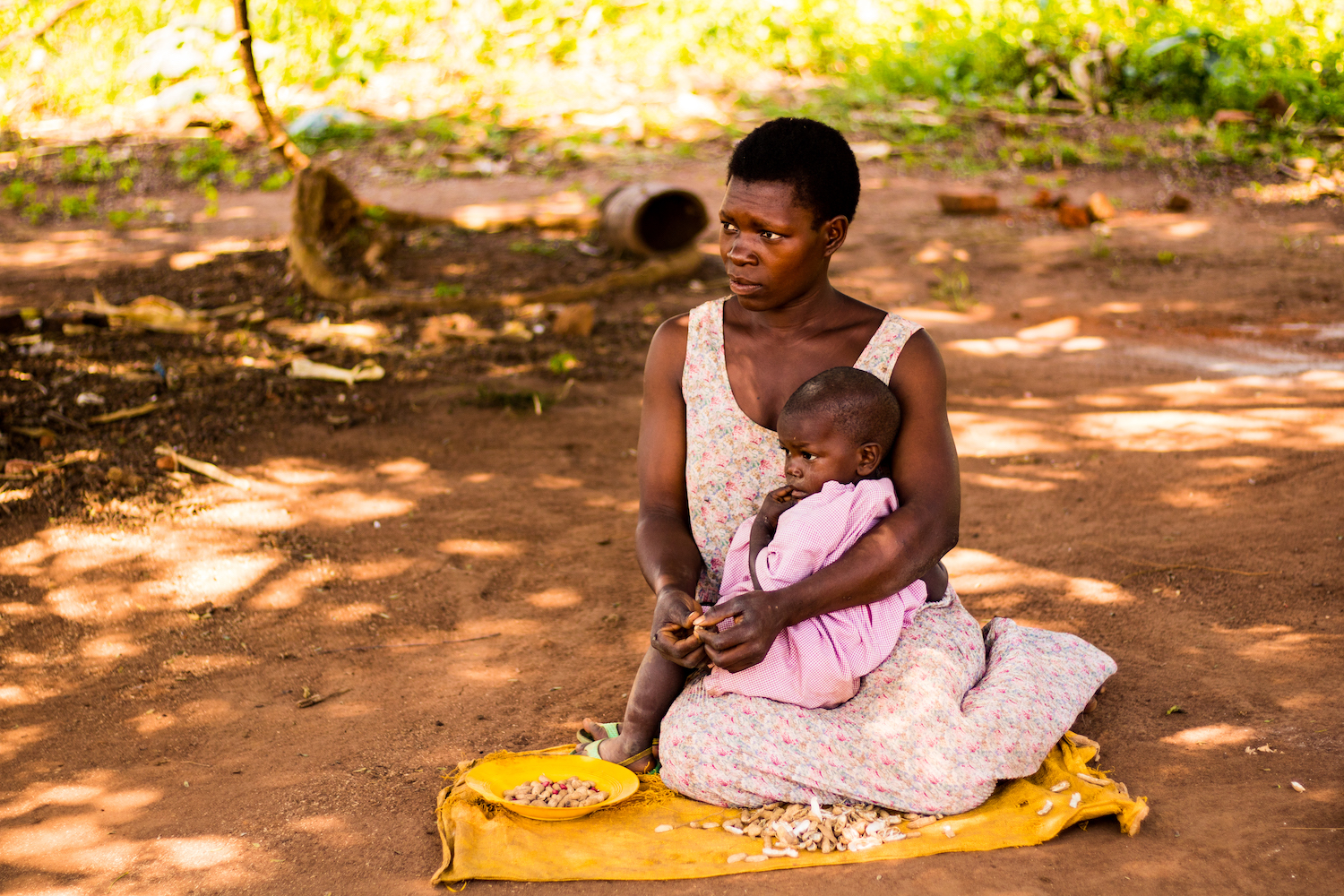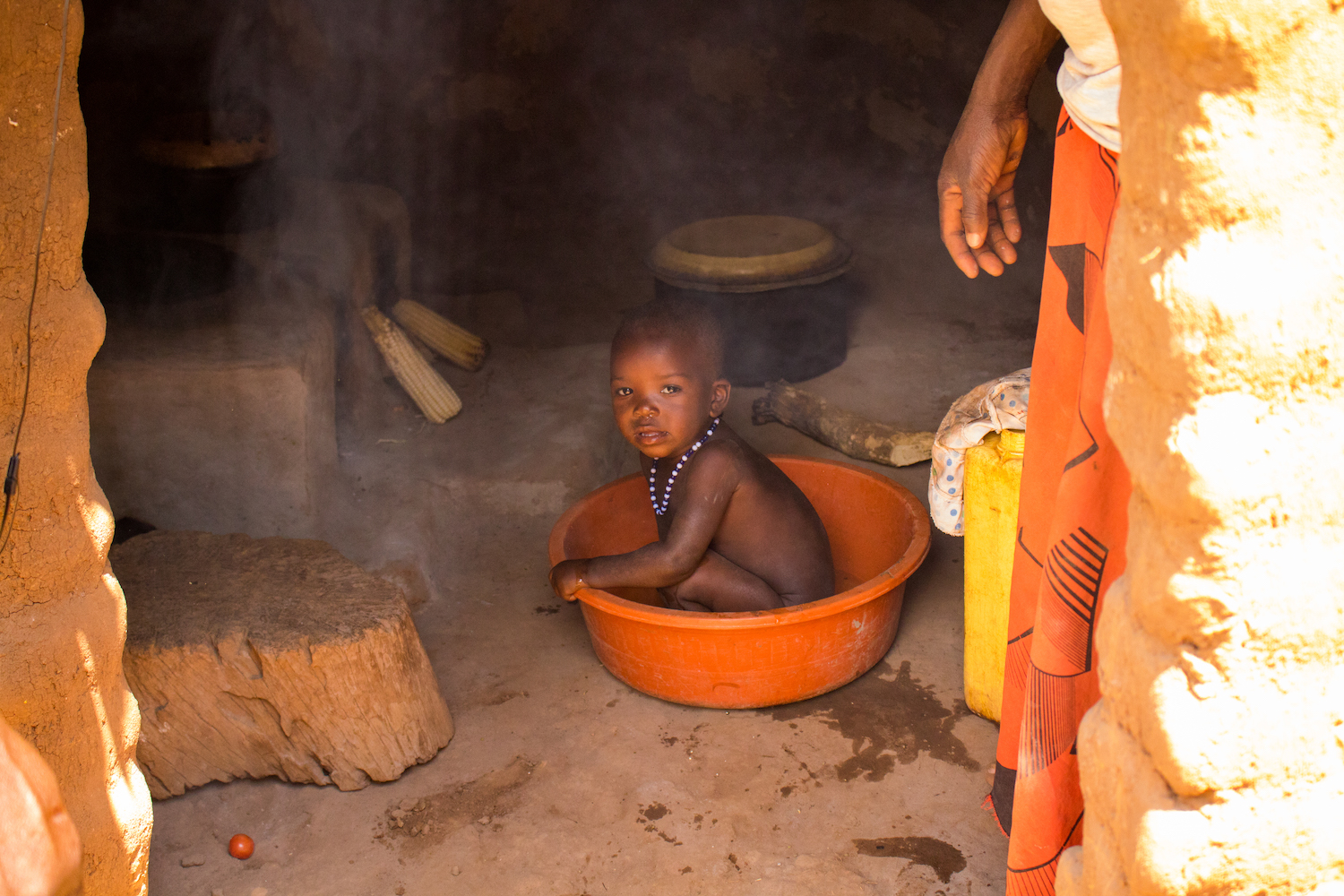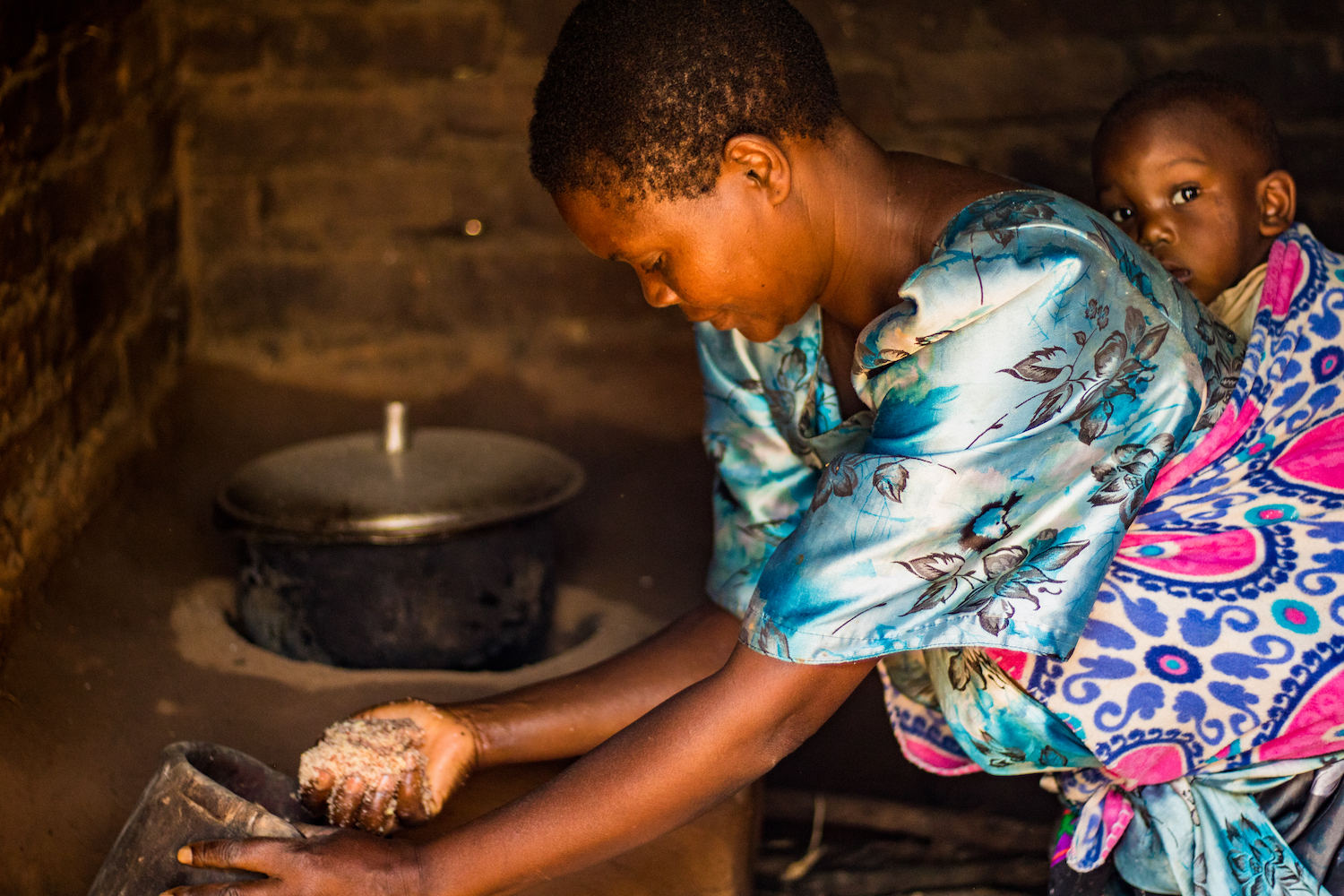Surprise! Impromptu village visit resolves smoky kitchen issues
Kibo staff member Harriet Kefeza made an unexpected visit to Nawandyo village last week to check up on the village's use and maintenance of their stoves and hygiene facilities.
Most of the women raved about how useful and life-changing their stoves are. Throughout the day, Harriet repeatedly heard women say in Lusoga, "My stove cooks my food faster, uses less fuel and creates far less smoke in my kitchen." Most of the families Harriet visited had completely abandoned open, three-stone cooking fires.
Many of the people Harriet met didn't have any problems with their stoves, and Harriet could see that they were using them consistently and properly. However, occasional surprise visits also give Kibo staff the opportunity to see how a village is really doing. Most importantly, they give the staff an opportunity to correct mistakes and address questions that may have gone unnoticed during a planned visit.
Smoke was the main issue that Harriet addressed during the surprise visit. The dangers of open-cooking fires are numerous, including burns from the open flames and health issues caused by smoke inhalation. While stoves solve the former, smoke can remain a huge problem if a stove is built or used improperly.



During this visit, several women complained that their stoves were producing too much smoke. Harriet showed them how smoke can come through uncovered holes and taught them different ways to fix the problem.
In other cases, too much firewood in the stove is what filled the kitchen with smoke. Open-cooking fires require nine times more wood to cook a meal than stoves. Out of habit, many women use far more wood than necessary when cooking on their stoves. Harriet explained to them how a meal that might require nine logs on an open-cooking fire only requires one log in a stove.
Still in other cases, smoke filled the kitchen because the community had built the stove on the wrong side of the house. Harriet and her team, Jeska Nairuba and Tape Bwana, return to a village to teach a community how to build stoves until they are confident that the community is practiced enough to build them on their own. Occasionally, however, unanticipated issues arise after the stove-building team has left. One of those issues in Nawandyo was the direction of the wind, which the community members did not know they had to take into consideration when building the stoves.
Harriet reassured them that because the community knows how to build the stoves, and because all of the necessary materials are freely accessible within the village, they could deconstruct the stove and rebuild it on the correct side of the kitchen.
The holistic nature of Kibo's approach to sustainable development prompted Harriet to check up on Nawandyo's sanitation and hygiene facilities. She made note of the condition of dishwashing racks, hand-washing facilities, latrines and showers so that she could report to the Water, Sanitation and Hygiene (WASH) staff about how the village is doing.
Because Kibo empowers the Nawandyo community to take responsibility for their own health and wellness, the staff is confident that Nawandyo will thrive far into the future. Kibo prioritizes answering questions now so that Nawandyo has the tools and knowledge it needs to address needs and solve problems together.




